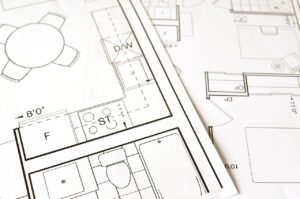Any new building construction, demolition, repair or modifications to existing structures must have a building permit submitted and approved before work can start. It can be challenging navigating the permit process in Massachusetts and it is important to be aware of what is required before an application is attempted. All building permit processes involve a long list of prior documentation which must be submitted with the permit application.
In Massachusetts, the state is responsible for overall construction legislation as codified in the Massachusetts State Building Code (780 CMR), but permits for all non state owned building projects are assessed by the municipality within which the building project will take place. Permits for state owned building construction, demolition, repair or modification are assessed by the state’s district building inspectors. In this article, only the non state owned building permit process is discussed as this is the most pertinent to ordinary residential homeowners.
Understanding Massachusetts Zoning Laws
If you intend building a home or other structure, or modifying an existing structure, you should be aware of the zoning laws in the town or city where the land or property is located. You can’t just build whatever you like wherever you like. Each town, city or other local government entity will have a zoning plan which sets out how the land administered by that entity should be used. For example, if you are considering buying a plot of land and building a home on it, but it is in a conservation zone or in a commercial or industrial zone, your chances of getting a building permit are slim. Likewise, if you intend renovating an existing building and converting it to a café, bar or a workshop, your chances of getting a building permit approved are slim if the area the building is in has been zoned for residential use.
Zoning laws are not cast entirely in stone. You can apply for a variance to the existing zoning designation if what you would like to do is not supported by the zoning classification. Your appeal would be to the municipality’s zoning board of appeals, usually made up of appointed local residents. A hearing, typically less formal than that of a district court, may be scheduled to hear the appeal. An unfavorable decision by the board can be further appealed by the state’s Land Court. As with all legal action, it is useful to hire a construction law attorney for guidance in any permit decision where a variance to local zoning laws is concerned.
Navigating the building permit process

Most construction work will be done by licensed contractors who will know what documentation needs to be obtained before a building permit application can be submitted, but any homeowner who is considering doing the work themselves or using an unlicensed contractor will need to ensure they know exactly what documentation they need to supply with the permit application, otherwise the application could be rejected.
The nature of the documentation required is too varied to be given in detail here, but just to give an example, any new building construction, whether it is a whole home or an additional building, will need a plot plan stamped by a registered state Land Surveyor which conforms to the state’s plot plan regulations. There may be a need for confirmation of how construction site debris is to be removed and other permits in addition to the building permit may need to be applied for, especially if there are any restrictions imposed because of the conservation significance of the surrounding area.
Homeowners who need help with documentation and building permit applications should contact an experienced construction law attorney to provide legal help.
Completing the building permit application form
Each municipality, e.g. the City of Cambridge, decides on its own building permit application form, but a standard form that can be used is supplied by the state’s Board of Building Regulations and Standards (BBRS). This is the “Building Permit Application to Construct, Repair, Renovate Or Demolish a One- or Two-Family Dwelling”. The BBRS application form or its equivalent can be downloaded off the municipality’s own website. Information to be filled in includes the following:
1.1 Property address;
1.2 Assessor’s map and parcel number;
1.3 Zoning information;
1.4 Property dimensions;
1.5 Building setbacks;
1.6 Water supply;
1.7 Flood zone information;
1.8 Sewage disposal system;
2.1 Name address and contact details of the owner of the property;
3 Check list of the categories of work to be completed (e.g. new construction, demolition, repairs etc.);
4 Estimated costs of building works (this is used to calculate the building permit fee);
5.1 Details of the construction supervisor license (CSL) holder;
5.2 Details of the registered home improvement contractor (HIC);
6 Workers’ compensation insurance affidavit details (unless work is to be carried out by the home owner);
7a Owner’s authorization when an agent or contractor applies for the permit;
7b Owner’s signature to confirm that all details in the application are true.
Timeline for approval of a building permit in Massachusetts

If the building permit application is approved, the permit must be displayed at the construction site. As the construction work is completed, there may be a series of inspections done by the ISD inspectors to ensure that the standards set by the Building Code are adhered to.
For more information, visit our website or contact us for a free initial legal consultation today.
